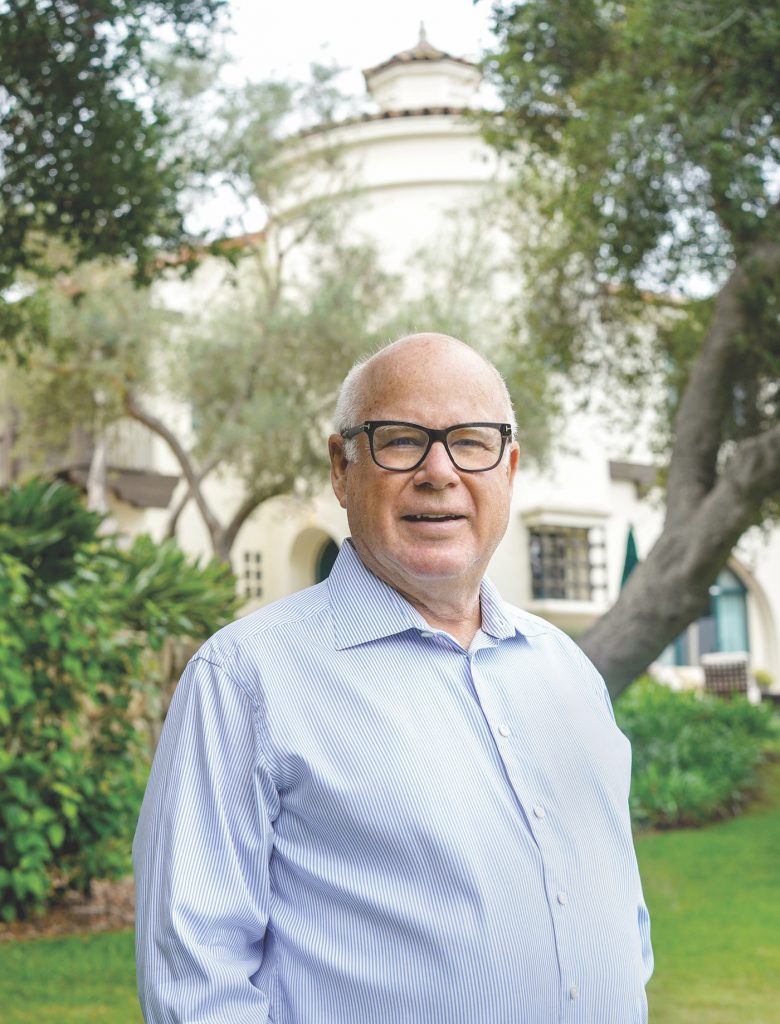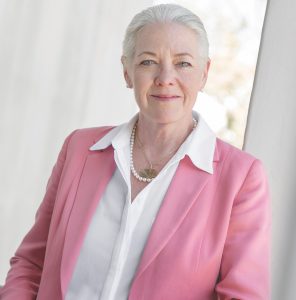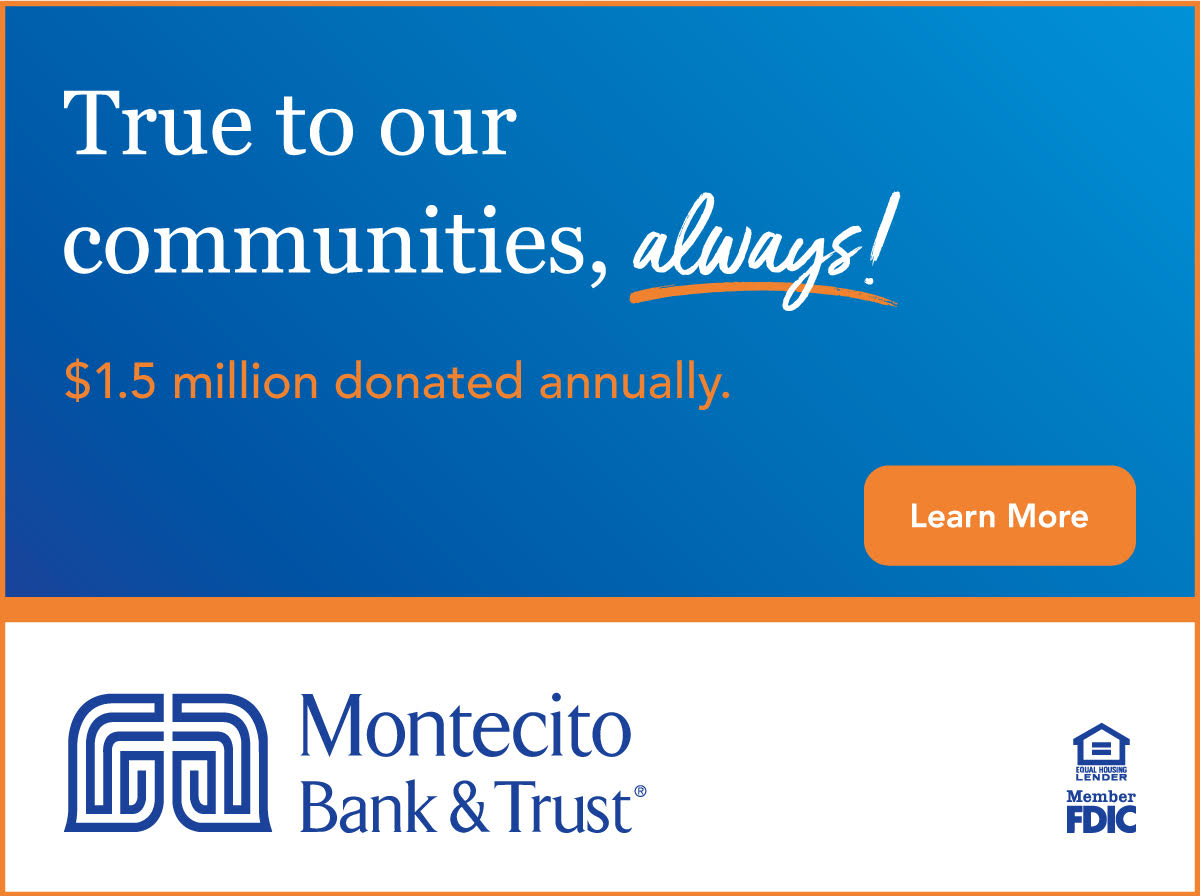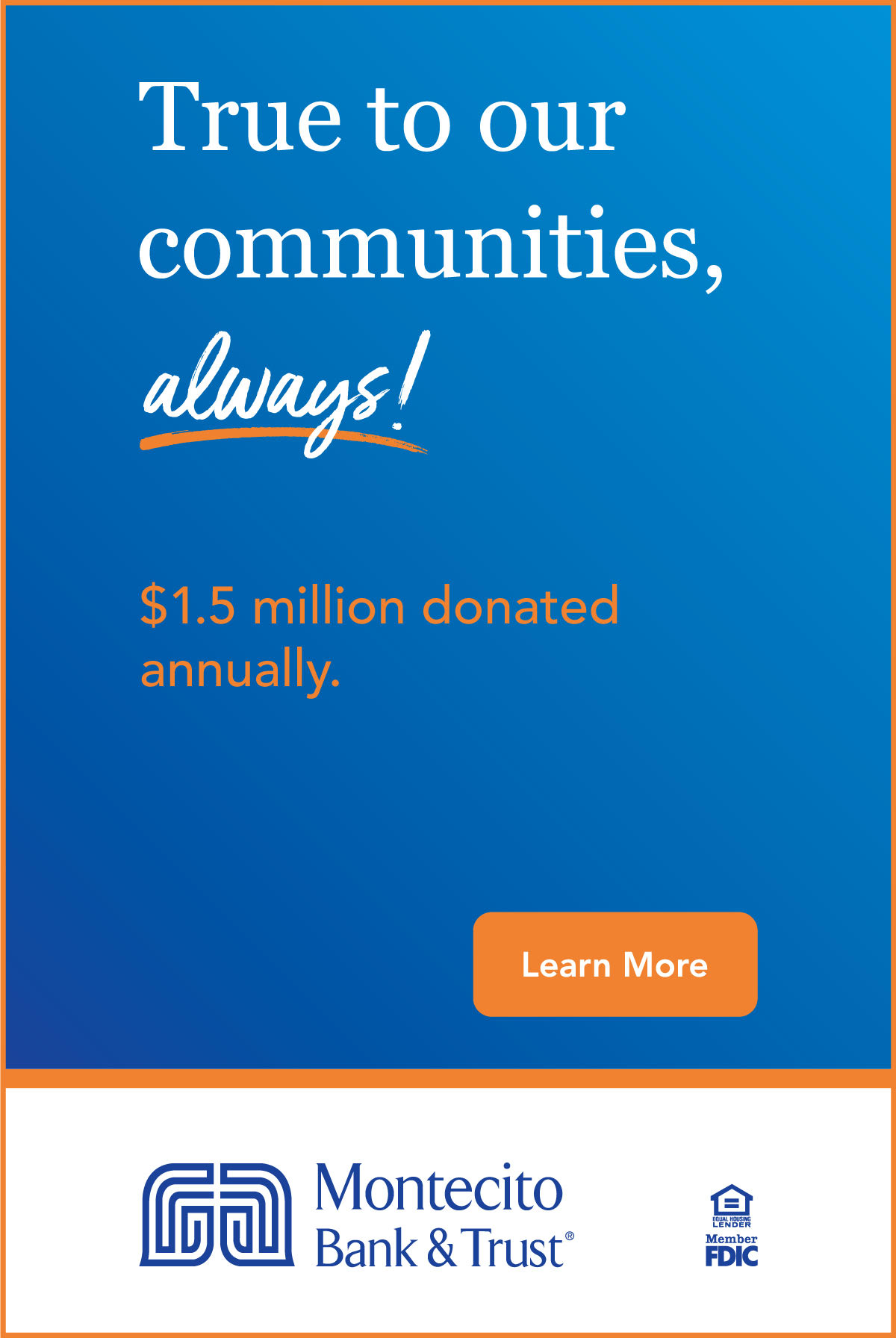Untangling Self-Interest from True Compassion by Nick Schou

The winding path of Santa Barbara philanthropist Kevin Brine – from near-broke college student obsessed with Sanskrit studies to living on an Upstate New York hippie commune in the 1960s-era to successful Wall Street investment manager – has landed him in Santa Barbara where he spends his time in pursuit of a private passion for religious studies and a public dedication to humanitarian work.
Brine grew up in a spiritually minded, literary New York family, so perhaps his path wasn’t that surprising. After all, his cousin was a Hare Krishna devotee and acolyte of Richard Alpert (aka Ram Dass, the New Age philosopher and Timothy Leary colleague). After two years in at the University of Wisconsin, Madison, Brine lived on a commune in upstate New York for the next three years. While her son was at the commune, his mother, Ruth Brine, the first female senior editor at Time magazine, was open-minded enough to invite him to go to India with her for a Time magazine project. “We went to India when my mother was doing a series of articles for on spiritual communities around the world,” Brine says. “I grew up in an environment that was the journalistic and literary milieu.”
After the trip to India, Brine went back to college to complete his undergraduate major in South Asian studies with a minor in soil science at the Ag school, supporting himself as a blacksmith – a craft that he learned on the commune and as a soil science student in the university soil and plant lab. Returning home to New York City, he set up a blacksmith shop in Long Island City to make ornamental ironwork and forged iron sculptures.
When he began wandering the streets of New York, he suddenly realized that he was broke and needed cash. “I had this epiphany on the Upper West Side,” he says, laughing. “I thought, ‘Someone owns all these buildings and I have no money at all.’ I had a blacksmith forge, an F100 pickup, and that was my entire wealth. So at 27, I began a night-school MBA program at NYU and went to Wall Street.” Brine’s family wasn’t exactly enamored of his line of work. “They thought I was bonkers,” he says.
But it was on Wall Street, where he labored at Sanford C. Bernstein Company until 2000, that Brine developed what became a keen interest and expertise in philanthropy. “When the company merged to become AllianceBernstein, a lot of my partners became serious philanthropists,” he says.
Brine’s first philanthropic project came about during the 1980s AIDS crisis when he founded the Pediatric AIDS Foundation. “We supported children at New York Hospital who had AIDS when they were born,” Brine says. “Almost overnight, the program went from serving no kids with AIDS to 200.” The foundation supported the children in all aspects of their life. “They had to come every week for shots.”
After caring for all the children, when the AIDS crisis in New York City subsided, Brine and his partners closed the foundation and sent all the money to support an AIDS clinic in Haiti. Brine also joined the boards of several nonprofits in the New York area, including Weill Cornell Medical College, the Whitney Museum of American Art, and New York University (NYU), where he simultaneously obtained a degree in English and American literature and funded the renovation of the undergraduate library at NYU’s Elmer Holmes Bobst Library on Washington Square – two floors of the library that are now known as the Brine Commons. “I served on several philanthropic campaigns in New York but then stopped doing fundraising,” he says, chuckling. “I had asked too many people for money, so I hung up my stirrups.”
Through NYU, Brine helped launch the Re:Enlightenment Project, an academic movement focused on studying the relationship of the Enlightenment period to the contemporary world. A conference at UC Santa Barbara hosted by vice-provost David Marshall – a founding member of the project – brought him to town seven years ago, which inspired Brine to settle in Montecito with his wife to raise four boys, the three oldest of whom attend the Crane Country Day School, where he currently serves on the board of trustees.
When he’s not busy writing books – including a recent University of Chicago Press tome on the history of finance and a current project on Tibetan Buddhism – Brine continues his dedication to giving, an interest that he sees as an extension of his religious research. “The most compelling and interesting thing about both Christianity and Buddhism is the fundamental idea of compassion; but more than that – objective compassion, doing something without self-interest,” he explains. “That’s tricky,” he adds. “Why do you give to one thing as opposed to another? My personal feeling is I like to give to things where I believe in their long-term impact.”
Brine sees philanthropy ideally as a force that – by tackling a societal problem in a small way – can ultimately show the way for the government to follow up with broader, more systematic efforts. “Philanthropy should be risk-taking,” he says. “The government shouldn’t be experimenting with tax dollars but rather do things that work.”
One of Brine’s favorite examples is the White Buffalo Land Trust, which recently purchased the 1,000-acre Jalama Canyon Ranch to demonstrate how regenerative farming practices can improve the environment, support the community, and be economically viable. “I think the quality of the environment is one of the biggest issues facing our society right now,” he says. “What they are doing is local on the Gaviota Coast, but they are really doing something that can be leveraged across the country. To me that’s very inspiring.”


